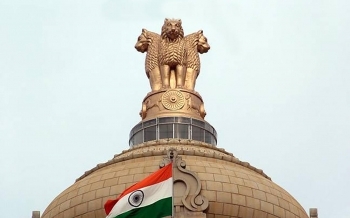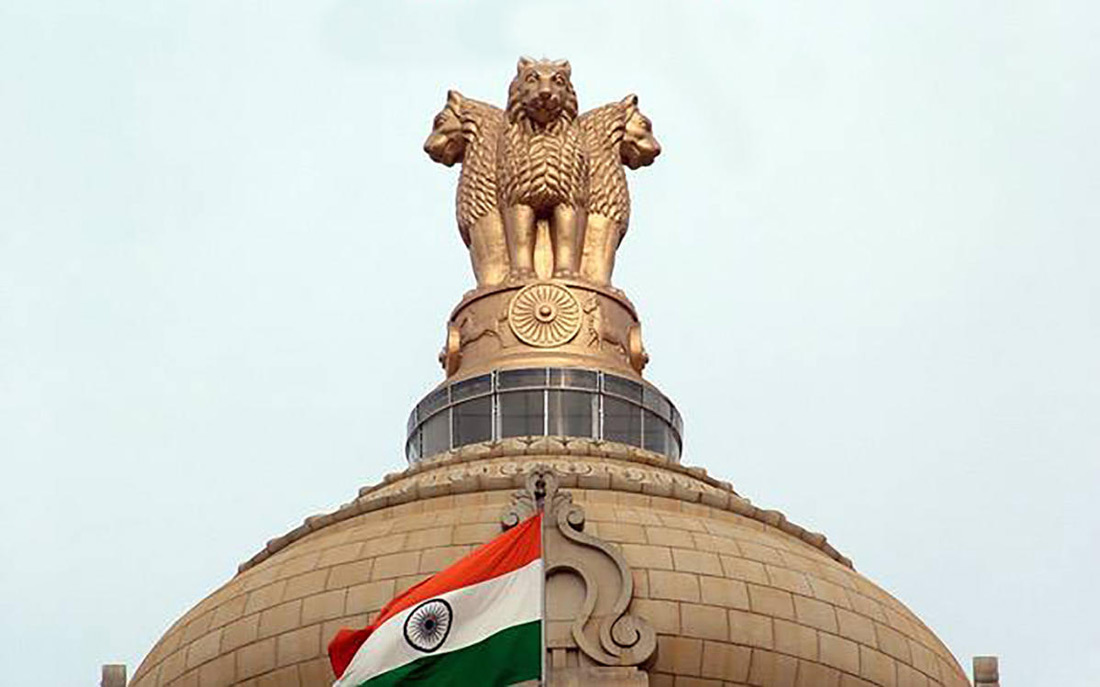
.jpg) Little Sister Leelamma
Little Sister Leelamma

Every Year, Republic Day is celebrated on 26th January to commemorate the date on which the Constitution of India came into effect and the country became a Republic. The free nation by becoming a Republic thus enjoys the true strength of independence. While we hold this event this year under the shadow of pandemic and without the presence of any foreign dignitary gracing us on the cherished occasion, still it is a moment of immense pride, honor and happiness. The day has given us an opportunity to connect to our rich cultural heritage, which is a summit of human thoughts.
Structure of the Republic
India, also known as Bharat, is a Union of States. It is a Sovereign Socialist Secular Democratic Republic with a parliamentary system of Government. The Republic is governed in terms of the Constitution. The Constitution provides for a parliamentary form of Government which is federal in structure with certain unitary features.
The constitutional head of the Union is the President. As per Article 79, the Council of the Parliament of the Union consists of the President and the two Houses of Parliament. Article 74 (1) prescribes that there shall be a Council of Ministers with the Prime Minister as the head to aid and advise the President, who shall exercise the functions in accordance to the advice. This makes it clear that the real executive power is vested in the Council of Ministers with the Prime Minister as its head.
A Republic based on Laws
In a Republic, people hold power, but elect representatives to exercise that power. They exercise political power. The Constitution not only provides the framework for how the Union and State Governments are structured, but also places significant limits on their powers. It is true that ‘’democracy” and “republic” have been historically pitted against one another. But like Granny Smith apple is a form of apple, Republic is a form of democracy.
Indian Republic is based on laws and not on majority rule. Majority rule often leads to tyranny because issues are mostly decided without considering the rights of the minority, but by an overbearing majority. History tells us when Benjamin Franklin, the founding father and chief architect of the US Constitution, exited Independence Hall in 1787, he was asked what kind of government did you give us? His answer was, “A Republic, if you can keep it”.
Our Founding Fathers crafted and gave us a Republic even while retaining democratic pattern of government to ensure that the minority and their rights will not be stripped away by the majority and to avoid a mob rule where 51 percent of the people could take away the rights of the other 49. They definitely wanted to avoid situations like two wolves and a lamb voting on what to have for lunch.
People as the Masters
Republican Government derives its power and strength from the people. People are the masters in a republic. Our republican customs and ethos can be weakened by potential excesses of democratic majorities.
Indian republicanism possesses a noble inheritance, bought by the toils, sufferings and blood of our ancestors. It is reared for immortality. No other form of government has better stood the test of time. The Republic of yesterday, today and tomorrow, if wisely improved and faithfully-guarded, is capable of transmitting to us and our posterity all the substantial blessings of life, liberty, pursuit of happiness, property, religion and independence. It is a constitutional panacea having adamantine strength capable of withstanding the stream of time and curing the infected cells affected by the societal evils in the form of corruption, inequality, crime, exclusion and isolation.
Not an Empire or Dominion
Republic is not an empire or dominion for political domination or to embark on a conquest, but an epitome of virtue, employing only that extent of minimum restrictions on people’s rights and freedoms which are reasonable, necessary, proportionate and having a legitimate purpose to satisfy in democracy.
Even otherwise as ponderously stated by Lord Diplock in R. V. Goldsmith (1983), “you must not use a steam hammer to crack a nut if a nut cracker would do”. It always looks for a balancing, as it is built on the supreme will of the People. Indian Republicanism is founded on the pillars of Constitutional Governance, Limited Government, Rule of Law and Guided exercise of power.
The apathy of the citizens in a Republic is dangerous to republicanism itself. The spirit of inequality and extreme equality are excesses to be avoided. Egalitarianism must guide our Republic with the deep presence of the core values of tolerance, broadmindedness, pluralism, compassion and respect for human rights.
Republican Institutions must Refine
Republican Institutions must refine views, apply a brake to impetuous decisions, inject reason into impassioned debates, help make far-sighted decisions, focus on what could be seen and even unseen for a sustainable future. The striking and inspiring words of wisdom shared by Joseph Story, the greatest American Jurist, is worthy of attention on this cherished moment. “Republics are created by the virtue, public spirit, and intelligence of the citizens. They fall, when the wise are banished from the Public Councils, because they dare to be honest, and the profligate are rewarded, because they flatter the people in order to betray them”.
A long period of seventy-two years has passed by since the baby republic was born. But the upcoming question often being raised is this: Is it slowly moving from a full and deep Republic to a flawed Republic? The vision, farsightedness and wisdom of our Founding Fathers in constituting India as a workable Republic may not be easily forgotten. The structured republic may not become fractured.
Be with the People
Love of Republic is love of Democracy itself. Republic calls us to be with the people, walk along with them. Preserving the republican freedoms we cherish and follow, at times require balancing exercise for achieving egalitarianism and a just society. The Greek Philosopher Plutarch impressively remarks: “An imbalance between rich and poor is the oldest and most fatal ailments of all republics”. Republicanism must therefore bolster the dimensions of equality rights and accountability. It is the solemn duty of all of us to preserve and keep the values of our indestructible republic.
(The writer is a prominent lawyer, an acclaimed writer and a distinguished academician based in Kochi)